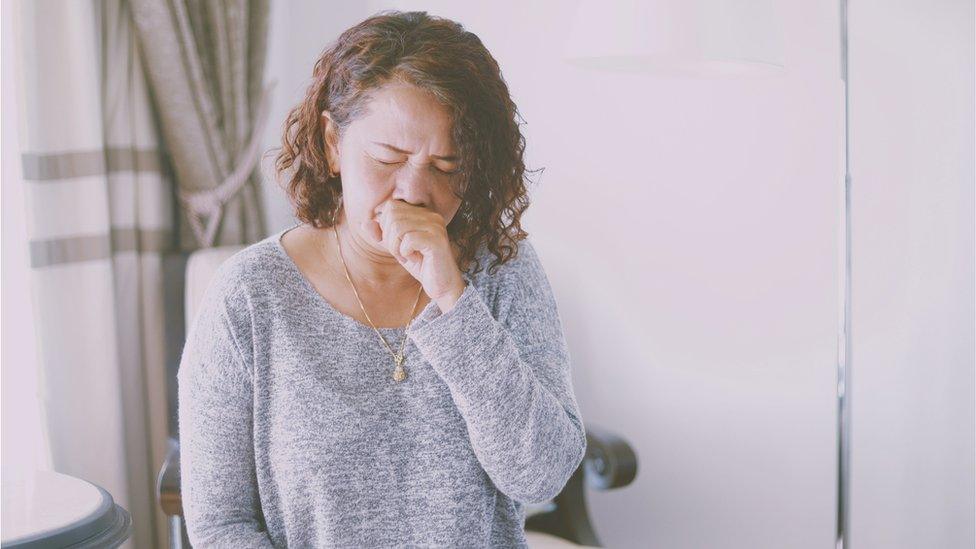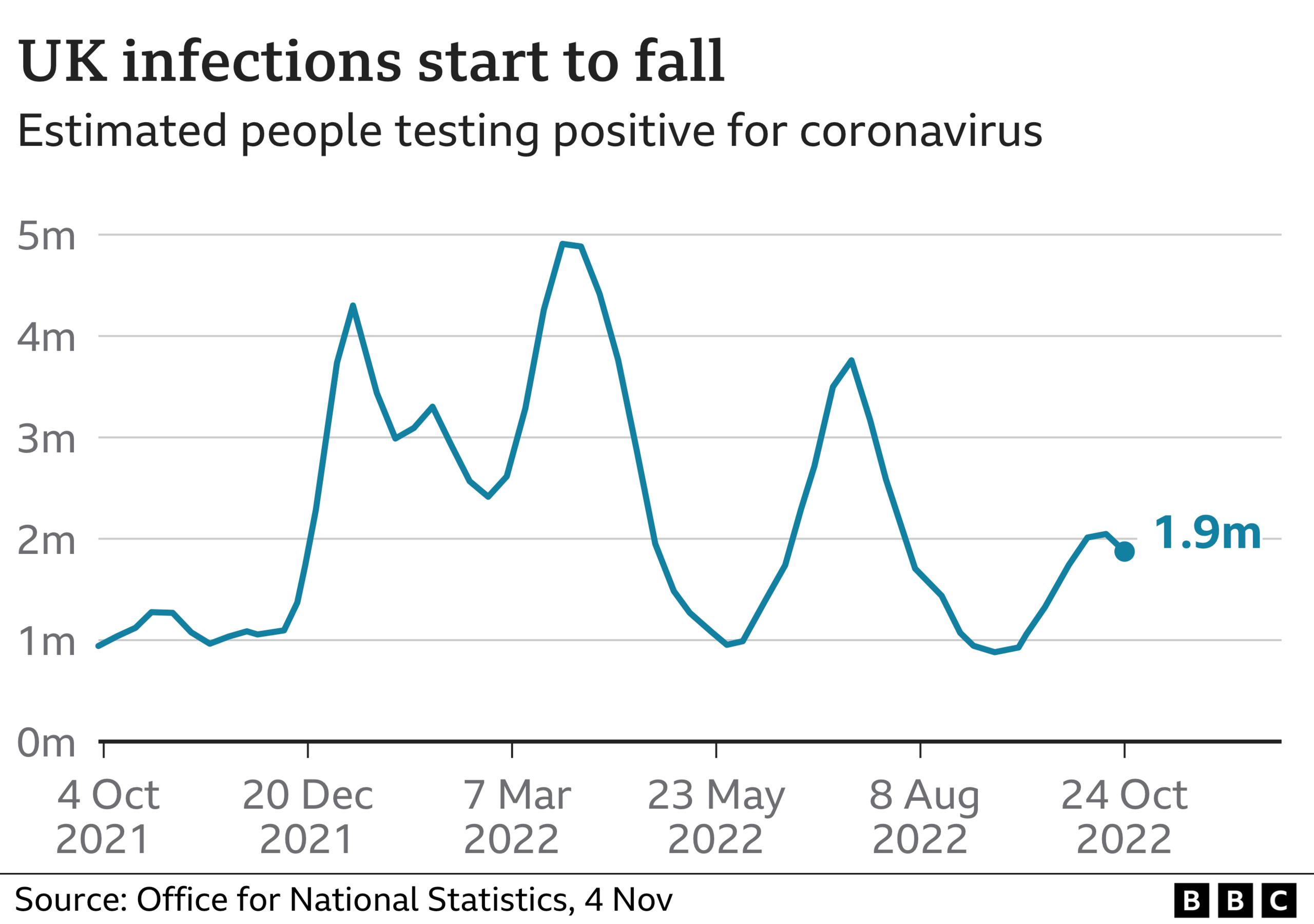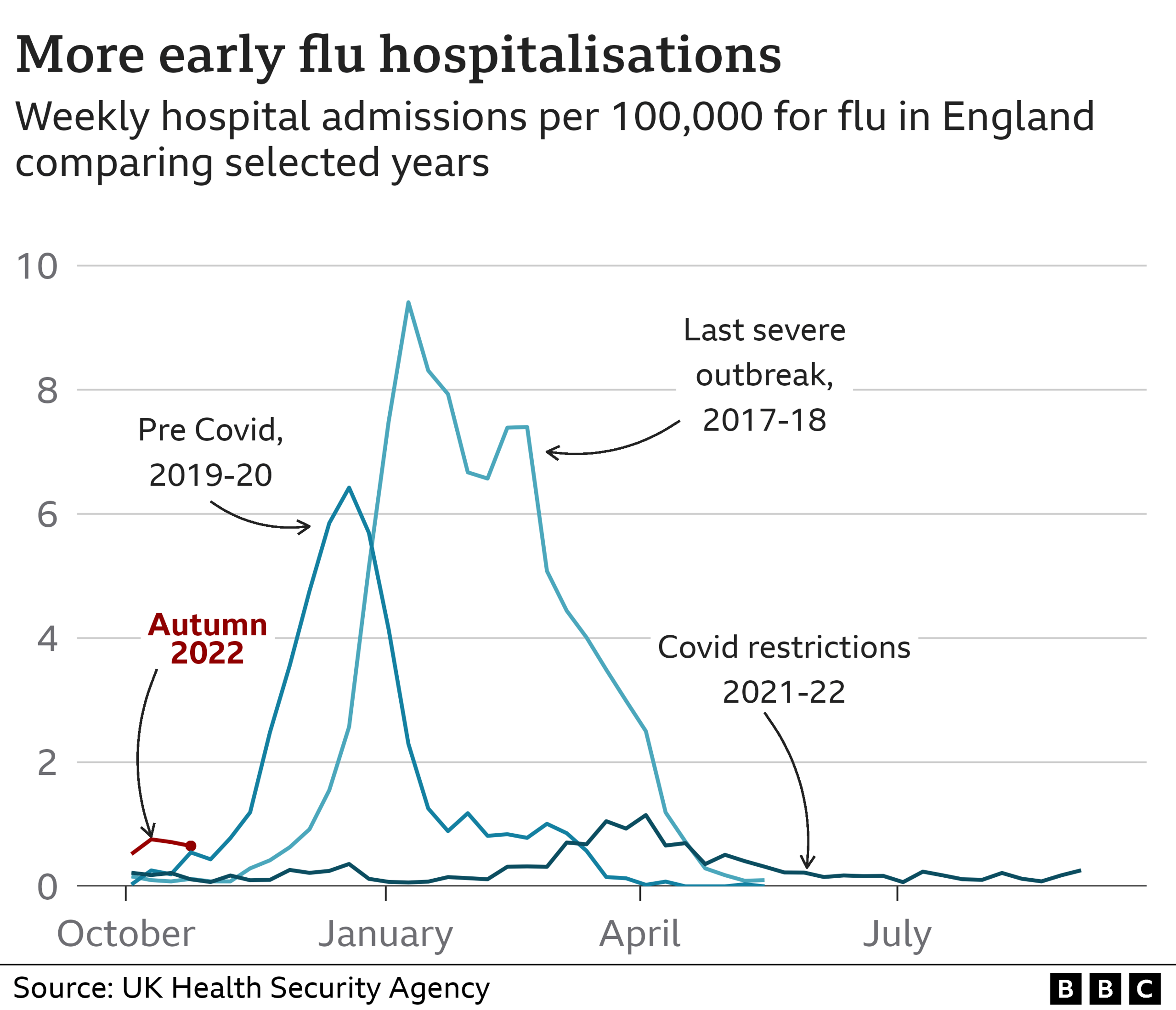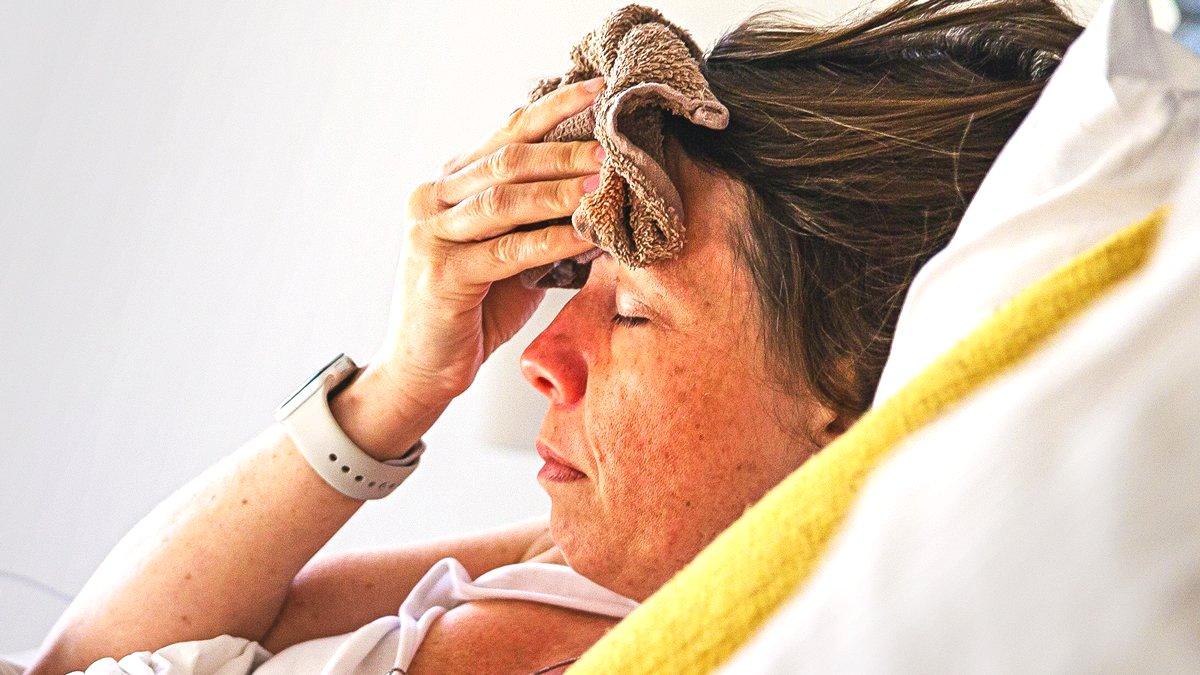Covid infections falling in England and Wales, says ONS
- Published

Covid infections have fallen in England and Wales, according to the Office for National Statistics.
The ONS figures show levels have increased in Northern Ireland and the trend is uncertain in Scotland.
Overall about 1.9 million people have the virus, or one in 35 people. This down from 2 million, or one in 30, the week before.
But experts warn levels are still high in the over-70s and say vaccines are key.
Other viruses, including flu, are on the rise.
The ONS estimates, external of Covid infections are based on tests carried out a few weeks ago on people in households across the UK whether or not they have symptoms.

In the UK nations, Covid infected:
one in 35 people in England, from one in 30 the previous week
one in 40 in Wales, from one in 35 the week before
one in 30 in Northern Ireland, increasing from one in 35
one in 35 in Scotland - the same as the week before
National data, external shows the number of people being admitted to hospital with Covid is decreasing.
But experts are concerned there may be a "twindemic" of both Covid and flu this winter, with increasing levels of illness and pressures on the NHS, and say anyone offered vaccines should take them.

Overall, levels of flu are still low, but figures from the UK Health Security Agency (UKHSA) show infections have been rising in recent weeks with the virus now spreading across all age groups.
People aged 85 and over are most likely to be admitted to hospital with the virus.
But UKHSA experts warn children aged two to three may have little natural immunity to flu and can also become severely ill, with some young children already being admitted to intensive care.
The number of young children being admitted to hospital with the winter bug RSV (respiratory syncytial virus) is also increasing.
Dr Conall Watson, from the UKHSA, warned RSV could be particularly severe in children under two.
"With RSV rising, actions like using tissues and handwashing can reduce spread to the most vulnerable," he said.
"If you are ill, do not visit babies. If you are worried your infant has cold symptoms with any unusual breathing or difficulty feeding, please contact 111 or your GP.
"If your child seems seriously unwell, trust your judgement and get emergency care."
Related topics
- Published2 April

- Published2 November 2022
